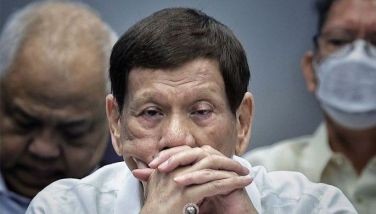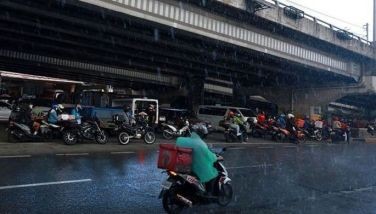Comelec lawyers from Luzon, Visayas to help in ARMM polls
MANILA, Philippines – The Commission on Elections (Comelec) will deploy its lawyers from Luzon and the Visayas to assist in the Aug. 11 elections in the Autonomous Region in Muslim Mindanao (ARMM).
Comelec Commissioner Rene Sarmiento clarified though that their lawyers would not replace the teachers who traditionally comprise the Board of Election Inspectors (BEI), saying there is no need to do so.
In an interview, Sarmiento said the situation in the ARMM is manageable and that no election-related violence has taken place even as the elections are fast approaching.
During a pre-summit conference for the ARMM polls organized by the Church-based Parish Pastoral Council for Responsible Voting (PPCRV), Sarmiento said he would propose to the Comelec the reactivation of its special action group – composed of lawyers – to supervise the ARMM polls.
The plan was strongly supported by Muslim religious leaders and poll reform advocates present in the summit.
The scheme had been tested effective during the 2001 and 2005 plebiscites and the 2007 special polls in the ARMM, which has been labeled as the “cheating capital” of the Philippines.
Sarmiento added that under the plan, the lawyers would help oversee preparations of voting, counting and canvassing facilities as well as ensure that the BEIs receive their payments in full and on time.
He said the lawyers would also coordinate with appropriate agencies to ensure ample supply of electricity in the region during the elections and to make certain that alternative power would be available in case of a power outage.
Commissioner Moslemen Macarambon gave assurance that preparations for the ARMM polls are in “full swing” and that the Comelec is on schedule.
Macarambon said newly appointed commissioners Lucenito Tagle and Leonardo Leonida have been given Sulu and Shariff Kabunsuan, respectively, as their ARMM regional assignments.
But Macarambon, who is in charge of Lanao del Sur and Maguindanao, was tasked to assist Leonida while Sarmiento will back up Tagle aside from handling Tawi-Tawi.
Macarambon added that next week Comelec commissioners would be holding a command conference with the election officers and military and police officials in their respective provincial assignments.
He added that the papers to be used in the voting, counting and canvassing imported from the United States would be delivered on July 18 and he would make sure that the National Printing Office would print them on time.
‘Touch’ voting in Maguindanao
The Comelec will implement “touch screen” automated voting in Maguindanao to test the new technology that could also be used in the 2010 presidential elections.
Comelec spokesman James Jimenez demonstrated to reporters during the weekly Kapihan sa Sulo forum in Quezon City the latest automated voting machines that will address the perennial problem of election cheating particularly dagdag-bawas or vote padding and shaving.
The use of the automated voting machines is part of the program to fully automate elections by 2010.
“Although it may not solve the entire problem of election fraud the automated elections will surely address the serious concern of dagdag-bawas,” Jimenez said.
The Direct Recording Electronic (DRE) will allow voters to view and touch the pictures of their candidates on the computer screen.
Vince Dizon, spokesman for Smartmatic-Sahi, said their new technology minimizes human intervention in the voting process.
However, the new technology will only be available in Maguindanao as the Comelec will still be using the 10-year-old OMRs, which are scanning devices, in the provinces of Basilan, Lanao del Sur, Shariff Kabunsuan, Sulu and Tawi-Tawi.
Voters in these areas would continue using paper ballots where they will shade the names of their candidates. The ballots would then be read by the OMRs.
“Our hardware may be old but our software is reliable and has already been tested,” said Leo Querubin, project director of Avante International Technology, which provides the OMRs, during the forum.
He also cited security features in the OMR that would ensure clean and honest elections in the region.
Among the possible problems with using the OMR include a computer shutdown since some of the PCs being used still run on the outmoded Windows 2000 program. – Sheila Crisostomo and Perseus Echeminada
- Latest
- Trending
































